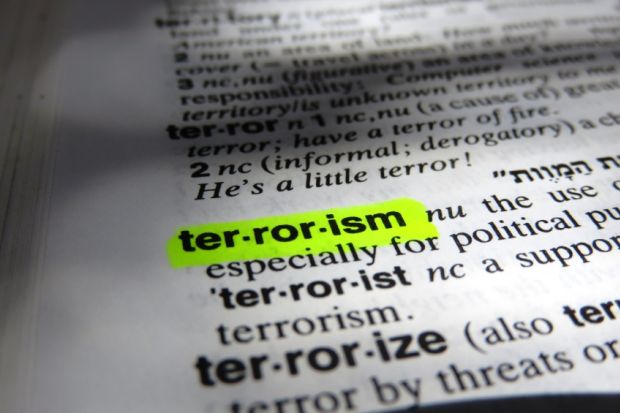The Daily Mail’s well-documented investigation into Cage’s campus recruitment last week shows, yet again, that extremists of all hues regard UK higher education students as low-hanging fruit – and explains why universities should be more alert to this than they are.
Cage used to be a lobby for those who saw themselves as having been unfairly imprisoned, but one of its key targets now is the latest version of Prevent. Its website damns the policy as a “cradle to grave police state”. Perhaps not brilliant syntax, but it’s clear what they mean.
The Mail trailed a senior Cage figure, Moazzam Begg, at some 13 student events last term (he spoke at King’s College London twice, at Soas, and the universities of Birmingham, Manchester and Bradford), noting things he appears to have said, and the claims of the higher education institutions involved that they had been unaware of this, so failing to offer students balancing views.
Begg is reported to have told Muslim students that they were being treated like the Jews in Nazi Germany; that Western reaction to the Paris massacres was “disproportionate” because “no children were killed”, that IS has beheaded “only a handful of Western hostages” and that the UK government consists of “white supremacists who want to isolate Muslims”.
Begg does not, of course, incite his listeners to terror. But the seeds he sows on campus must yield a bitter harvest: the hatred of Western ways in general and, specifically, of any attempt to keep extremists away from campuses.
Read more: Universities reject ‘extremism’ claims over events featuring Cage
Whilst not every radical becomes an extremist or a terrorist, every terrorist has first been an extremist and a radical. Yes, if people want to become extremists and face the consequences, that is their prerogative. But they don’t have to do so on campus, and universities don’t have to make it easy for the recruiters.
Universities should be places of learning, teaching and research. The idea that they exist also to mobilise individuals for political purposes or recruit them to organisations is wholly contrary to the idea of higher education.
Leaving aside the hypocrisy that has existed for many years that allows those with extreme views to regard universities as a “safe space” in which to proselytise but excludes those with unfashionable or bizarre views, the Tim Hunts and Germaine Greers, what makes me gasp is my own experience that some academics actually support extreme views.
At a seminar on Prevent at the School of Advanced Study at London University on 27 October 2015 as a speaker I had to listen to a fellow speaker, a law professor, describe Prevent as “McCarthyist” and claim that David Cameron would use it to destroy his political opponents.
Read our feature on the university’s role in counterterrorism
Are we seeing a re-run of the student protest movements of the 1960s and 1970s? One difference is that, with a few notable left-wing exceptions, the students and the dons (and administrators) in that era were on opposite sides. Today it feels like almost all academics oppose Prevent at the very least.
This is wholly to be regretted.
Ironically, totally diverse groups with differing and conflicting aims do manage to agree that fighting the government’s plan to squeeze extremism out of campus life can unify them, charmingly oblivious to the fact that if Islamists, for example, were to get their way, bisexual, gay and lesbian and trans groups would find life distinctly difficult.
The fundamental point is that universities exist to underpin a free liberal society, not to undermine it. And that is what Prevent seeks to do. It should be supported.
Extremists have understood only too well how the concept of academic freedom and free speech lets itself be masked to become a camouflage as a cloak for grooming and radicalisation.
It’s time to be clear about the purpose of higher education and these freedoms. As the Education Reform Act 1988 makes very clear, academic freedom is a freedom for “academic staff” only, to question and test received wisdom and put forward new ideas...without putting themselves in jeopardy of losing their jobs.
It therefore does not apply to visiting speakers in any way, and certainly not to Cage.
At the end of the day it is courts, and English and Welsh juries, and not academics, who decide what is, and what is not, a danger to our democratic way of life. I’m entirely content that this should be the case. I’m not saying that an academic (or even I myself) should be the ultimate arbiter of where the line has been crossed. But like every academic, I’m paid to make a judgement, and at a time of danger to our values, we should doing our utmost to secure them.
Anthony Glees is professor of politics at the University of Buckingham and directs its Centre for Security and Intelligence Studies.




